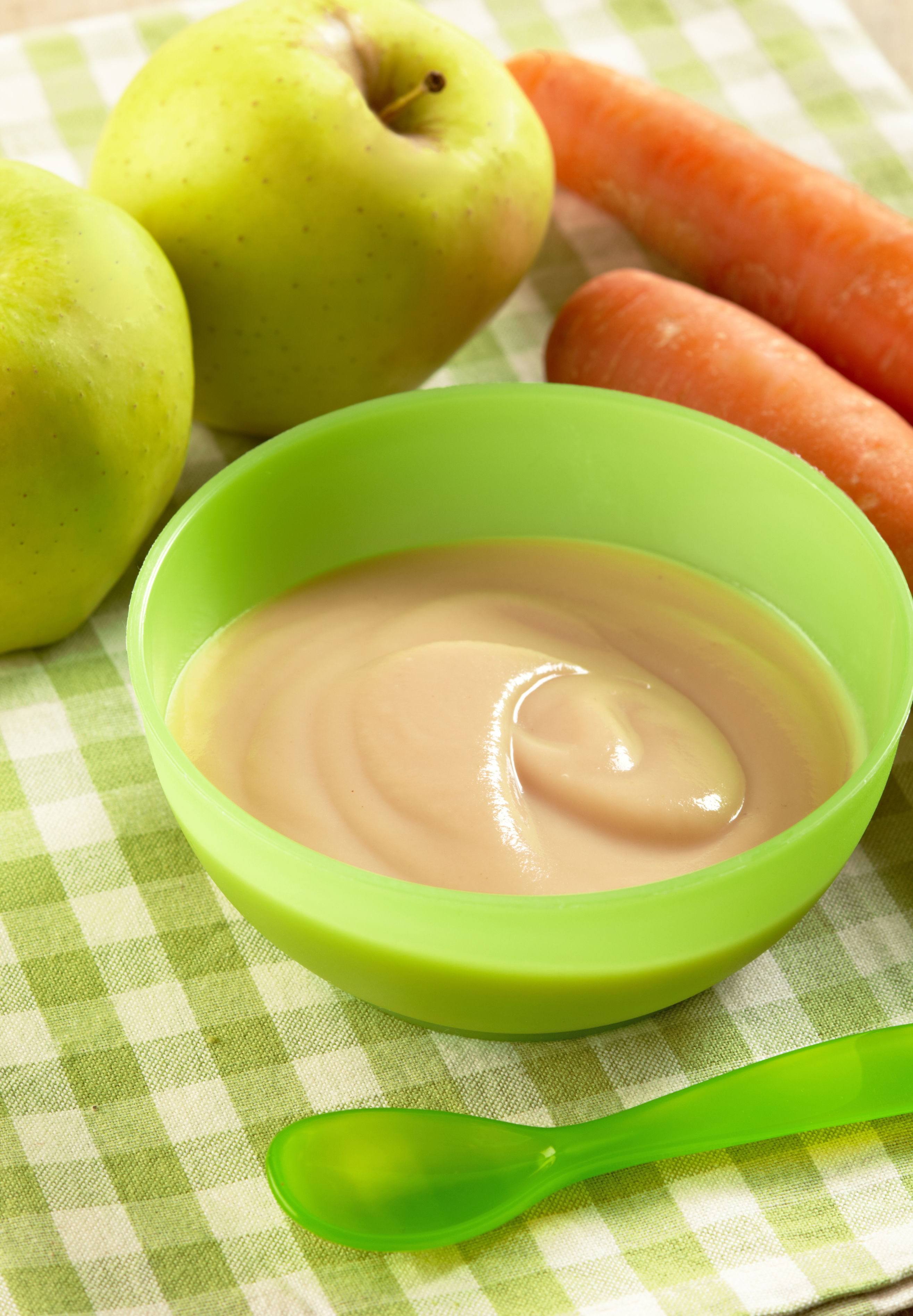Starting on Solids

Introducing your baby to solid foods is a major milestone- and not one to be taken lightly.
The CDC found that many parents were starting their babies on solid foods too early. Mothers are often overeager to start solids thinking it will help a baby sleep better, or it will cause them to drink less formula or breast milk and save mom time or money.
The American Academy of Pediatrics is firm on their stance- solid foods are an important part of development, but parents should wait until their baby is ready. What are the signs he may be ready? Ask yourself these questions:
- Can he hold his head up? Your baby should have head control and be able to sit up with no or minimal help.
- Does he open his mouth when food comes this way? Your baby might have an interest in anything on your plate.
- Does he accept food into his mouth? If he still thrusts his tongue when you attempt a solid food, he is probably not ready.
- Can he grab food using his fingers? The pincer grip will be used to feed himself as he learns to move food from the plate to his mouth.
- Is he old enough? The typical age for these milestone is 6 months. Some infants might be ready sooner, but consult your pediatrician to make sure.
Once you have the go-ahead, the messy fun can begin. Here are some tips to get started with solids:
- Be a food role model. Allow your child to watch you eat with your fingers or a spoon so he will understand the motions.
- Mix a small amount of breast milk into the food if it seems too thick. This will thin the consistency and give a familiar flavor to the food.
- Cereal is a common first food, but make sure you use a spoon and do not put it in a bottle. This is a choking hazard and doesn’t allow baby to practice all the skills needed to eat solids.
- Don’t use solids as a substitute for breast milk (or formula.) The majority of his nutritional needs are still coming from the milk.
- Wait 2-3 days between each food, so you will know the cause if you suspect an allergic reaction.
- Don’t expect much at first. Much of the food will end up on the floor or on baby’s face. Introducing solids is a learning experience for your baby.
Want more info? Check out the AAP guidelines online.
In February: Win a copy of “The Amazing Make-Ahead Baby Food Book” on our Facebook page!

